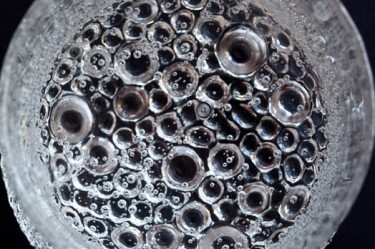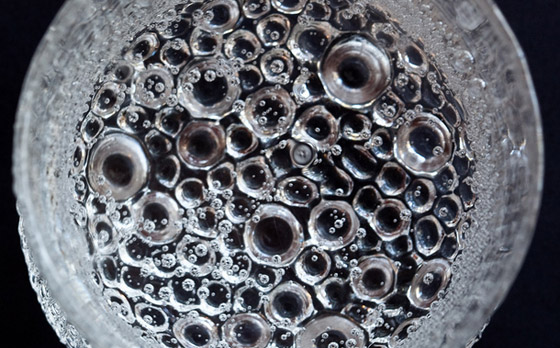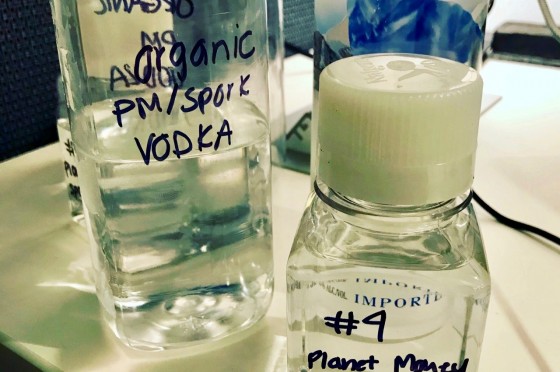
This is a question that has been vexing me recently, and I'd like your input. At first I was pretty sure that sparkling water is not water. The logic went something like this:
Water is H2O. When you add carbon dioxide (CO2) to carbonate it, carbonic acid is produced and it becomes something else. It has both a different taste and a different molecular structure. Only water is water--H2O, baby. Once you change its structure and flavor it ceases to be water.
However, that led me to consider flavored water. If you add some sugar and food coloring, which is pretty much what they do to make flavored water, you're also changing water's taste and molecular structure. So is flavored water still water?
On the surface the logical answer is that it is. After all, why is flavoring water different from seasoning any other food? If you put salt on chicken it's still chicken, right?
Somehow, though, that doesn't sit quite right with me. I wonder whether perhaps water, as an essential element of life, deserves to be considered differently when in its purest form. It's a basic building block of almost all foods and drinks, so if you say that when you add something to water it remains water, you're soon going to have to start calling many of the foods and all the drinks in the world "water".
Do we want to live in a world where chicken broth is considered flavored water? We must draw the line somewhere, and the most logical place to draw it is at H2O. Combine two parts hydrogen and one part oxygen and you've got water. Add anything else at all and it's no longer water--it's the base ingredient for something else.
At least, that's where I'm leaning today. What do you think?
Photo: Flickr CC / jar ()



